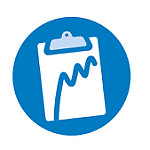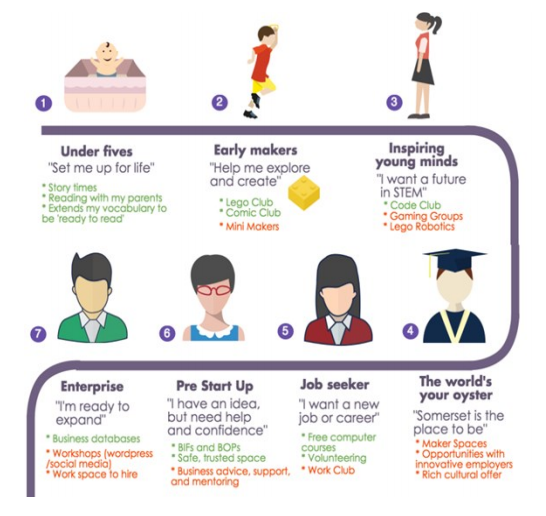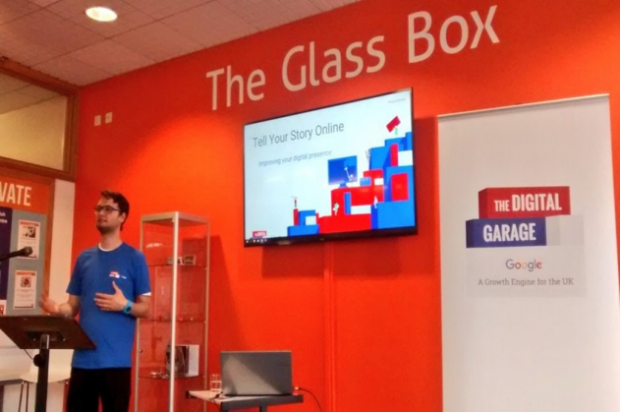

[Editors note: this post was written by Tabitha Witherick, Service Manager - Development at Somerset Library Service and was adapted from an article that originally appeared in the PMLG newsletter]
So do you need to be in a city to make digital making work? No! In our experience being in an area where digital making doesn’t yet have a big profile puts your library in a unique and exciting position. In 2015 a new set of commissioning outcomes were agreed for Somerset Libraries to deliver on, which included:
- More people are enabled and inspired to make the most of the digital world
- Libraries contribute to economic growth in Somerset
Getting started
Whilst we already delivered well on ‘digital enabling’ and had traditionally offered business information, we were keen to develop a project that helped to give greater profile to resources already available in libraries (company data, market reports, electronic factsheets for start-ups, free Wi-Fi) and grow the ‘digital inspiration’ aspect of our offer. We wanted to:
- Demonstrate and build on the libraries’ role in ‘cradle to grave’ skills development and how this supports economic growth
- Broaden partnerships to bring relevant partner led business focused activity and ‘expert’ volunteers to libraries
- Demonstrate what is possible, test demand and ‘prototype’ the future library offer for business start-ups, skills development and digital making
We started by plotting what we were already doing and how this might be developed, through an infographic. This proved very helpful when engaging partners with our ambition and ideas. (We had a lot of conversations!).

What emerged was a plan to create a new space for individual and collaborative working and learning at Taunton Library (our busiest library located in Somerset’s county town); to support business start-ups, digital making and skills development. A flexible space where we would host a range of digital maker and business events from Code Club to digital skills training for businesses.
The space itself, a shop front within the library building, had previously been the Tourist Information Centre. The phrase ‘Glass Box’ was coined by our commissioning manager and it stuck! We liked the way it represented what we were trying to achieve - creating visibility for library resources and giving people an inspiring view into the digital world.
We were given the space for a year by the property team, and we felt this offered a good timeframe to experiment with a range of partners, events and services.
After a few busy months planning, influencing and network building behind the scenes, followed by an intense period preparing the space we launched the project at the end of June 2016 and it has been all go ever since. There is a variety of equipment and software in the Glass box, have a look on our website for the full list.
We have 2 overarching objectives: enterprise and innovation.
Enterprise
Aim: to support budding entrepreneurs, business start-ups and creative minds, with business information, webinars and workshops.
Why?
- To create a town centre focal point and unique space for knowledge sharing and digital skills for business start-ups and SME.
- Early stage failure rates could be reduced from around 65% with the introduction of incubator and innovation centres
How?
We are actively seeking partners to offer one off ‘pop up’ events or regular activities such as workshops or one to one drop-ins.

Highlights so far:
- Google Digital Garage on Tour - a Google trainer came from Manchester and ran 2 workshops for over 100 local businesses. The sessions included ‘Tell your story online’ and ‘Reach new customers’. We were delighted to get ‘Google’ to Taunton!
- Funding for Google Digital Garage Workshops - We successfully bid for funding from the Tinder Foundation to enable the delivery of small Google Digital Garage workshops to help businesses build digital skills to reach more customers online
- Social Media workshop - As part of the super-fast broadband roll out programme ‘Get up to speed’, we hosted a business focused social media workshop. We could have booked this out multiple times.
- FSB Meet the expert (Growth hacking) - The local branch of the Federation of Small Businesses developed and ran an event providing expert advice to help businesses grow, promote and increase their profit. Five top experts in their field were available to advise and help businesses with social media, business planning, networking, digital resources and accounting.
Coming Soon
A programme of business and expert delivered events are in the pipeline as local partners have come forward having attended an event themselves.
Innovation
Aim: inspiring digital skills development through coding, robotics and digital making.
Why?
- The CBI estimates that nearly 40% of firms looking for staff with digital skills have had difficulties recruiting
- House of Lords report warns that the UK could be left behind in terms of digital skills
- 82% of young people are interested in digital making. However, half of young people make things with digital technology less than once a week or never
How?
We are recruiting expert volunteers and STEM Ambassadors to set up a range of digital making workshops and events.
Highlights so far:
- Raspberry Jam - Taunton’s first ever ‘Raspberry Jam’ was organised and hosted by two teenage volunteers and included workshops exploring digital making - scratch, python, electronics, robotics and the sonic Pi.
- Maker in Residence – The Technical Director of a large company, (with a background in electronics, software and innovation through technology) is volunteering as the first Digital Maker in Residence. His ‘make things, do stuff – robotics for fun’ sessions have proved popular and he is currently exploring evening coding sessions for adults.
- Code Club - Our weekly group for 9-11 year olds to learn coding and digital making such as games and websites from expert volunteers restarted after the summer holiday in its new home.
- 3D Printing - The 3D printers have been used for a variety of projects, including miniature train enthusiasts, for school homework and by our Maker in Residence to create robotics chassis. There has also been interest from a number of businesses and local schools.
- Fun Palaces - As well as hosting a SCL SW regional workshop in the lead up to Fun Palaces, we also held a staff invented and led robotics themed Fun Palace on 1st October. The day was hugely successful in engaging a range of ages, most notably it attracted 8 to 16 year olds and kept them busy at the library for hours! The mobile 3D printer was requested at the Wells Library space themed Fun Palace - printing the ratchet sent into space for Tim Peakes.
- Taunton Developers Meetup - the local developers group now meet in the Glass Box, to raise their profile, recruit new members and hopefully support community activity, such as skills sharing or hack events.
Coming soon
- 3D Printing Workshops - Local 3D printer manufacturers, Robox, are running workshops to demonstrate their innovative product. This includes multi material printing, as well as router and cutter options.
- Open Innovation Challenge - WSP Parsons Brinckerhoff are sponsoring an Open Innovation Challenge - Groups of students will be asked to think innovatively under the theme of SMART Somerset, resulting in a pitch of their ideas to a Dragons Den style panel. The process will be facilitated by an external Digital Making expert.
- Apps for Good - We have been keen to use the Apps for Good programme (teaching young people to develop and create apps) and are excited that one of the local colleges are planning to run this for students in The Glass Box.
- Workshops with schools - We also have some workshops planned that will actively engage with schools and colleges about how they can further use the space and resources.
The recipe
A flexible, highly visible space - it was important that the space we designed was allowed us to easily reconfigure for a variety of needs. We also wanted any furniture to be reusable after the end of the yearlong experiment.
The team - the development of the project was very much a team effort, and it certainly would not have been possible without the dedication, hard work and commitment of all involved.
Expert volunteers – central to the delivery of events has been expert volunteers. They have come forward through STEMnet (we ran a local event in the lead up to launch) and people have also come from the local community by dropping in to find out what we are doing.
Budget
So you are no doubt wondering about the money! We scanned around for potential funding opportunities, but there wasn't anything immediately obvious or practical to apply for. We could have created a programme of events within the existing library space at a lower cost, but we felt we would get more profile from a 'shop front' approach.
Not having external funding has obviously limited the scale of what we could achieve, but it has also liberated us from predefined targets and outcomes and has made us work hard to draw in new partnerships, volunteers and supporters. We have been able to experiment within the stated aims of the project, which has resulted in some great case studies and opportunities to develop further. We are keen to secure funding to continue to innovate and grow the project beyond its first year.
We were offered 5 days of Arts Council funded consultancy time via our bridge organisation RIO. This provided us with details of the social enterprise model and has allowed us to work on a range of income generating options, to potentially enable a cost neutral operation in the future.
Challenges
IT. Working with our council IT provider was both helpful and difficult. No doubt we have asked them to innovate in a way other departments don't. They stepped up, but time was left very tight and we had to step in at various times to find workarounds.
Staff time. We don't currently have lots of frontline resource to support the project and there is more that we would like to do. The staff time we do have is spent upskilling and confidence building, as well as supporting the volunteer led events and activities.
A future uncertain. Starting on this journey without an end game was a risk and at times it has felt like a big risk! And yet, for us, not running with this project would have been the biggest risk of all. In a time when digital technology is changing so rapidly we believe libraries will have an ever increasing role supporting people to navigate the digital world. The question is, are we able to mobilise, evolve and change quickly enough to support our communities with their digital learning needs?
Successes
- Having a memorable, if slightly random, name for the project has helped. It seems to stick with people and many we talk to now say ‘oh yes I’ve heard of The Glass Box.’
- Colleagues in our Economic Development team have been incredibly supportive, and actually the relationship has been mutually beneficial - we have each made new connections as a result of working more closely together.
- We brought in 2TimesDo to provide workshops for the library team in advance of opening. This helped staff by breaking the ice with some of the kit available in the space.
- We have recruited a new development officer, who teaches the coding curriculum in school part time and works with us part time and we have new volunteers and potential partners coming forward as what we are doing is very visible.
- Key decision makers within the council now see how libraries can contribute to economic growth and skills development and are supportive of what we are doing.
- Our 3 month review showed we have had 5144 visitors, 170+ businesses engaged, 25+ events and workshops, 100+ young participants, 12 new volunteers have come forward and10+ new partners.
Top tips
If you would like to do something similar in your library, here are some tips:
- Get out there and talk to people. Influence anyone and everyone who will listen about the benefits of a project such as this. Having advocates in the right places will open doors to further conversations (and maybe even pots of money).
- Bring staff aboard early and keep in contact throughout. We adjusted how we developed aspects of the project, for example one of the team’s main concerns was around the 3D printers, which we ultimately decided to rent. This option included training, ongoing support and servicing (and also means we can upgrade after 3 years as technology will no doubt move on!)
- Use digital tools to tell your story. We have used Piktochart to plot our ambitions, Storify to amplify our events and Prezi for exciting presentations.
- Don’t worry about things not being perfect. Learn from your mistakes and understand that failure is part of the process.
- Don’t limit your ambition. You may not manage everything you aspire to, but you’re more likely to get further by being ambitious about what is possible. As one local entrepreneur said to me ‘You have to visualise it if you want to make it happen”.
- Do your research. Ask people who are already doing this sort of thing. Corinne Hill from Chattanooga Libraries (recommend you find out more) says ‘Innovation is on the edge of what is already happening’, so make sure you know what is happening! Libraries in the US are leading the way with digital making and we spent time checking out their websites. Travelling Librarian blog is a really helpful source. And of course we visited the inspiration that is FabLab Devon and Business and IP Centre in Exeter (thank you neighbours!).
- When it comes to digital making start with whatever you can manage. It can come in all shapes and sizes. SCL Code Green Toolkit is a great place to explore.
- Attend a few unconferences and digital making/ hack events. I’ve attended days like #CityMash at City of London and Things Camp in Plymouth to catch up with what others are doing with digital making (it’s great for inspiration, confidence building and creating a network of contacts). I was recently very lucky to explore MozFest with library folk from across the country thanks to an SCL Digital Leaders bursary, and came back with loads more ideas. And if you can’t get to the events yourself, jump onto Twitter and get chatting with those who are there using the event hashtag.
--------------------------------------------
Please note, this is a guest blog. Views expressed here do not necessarily represent the views of DCMS or the Libraries Taskforce